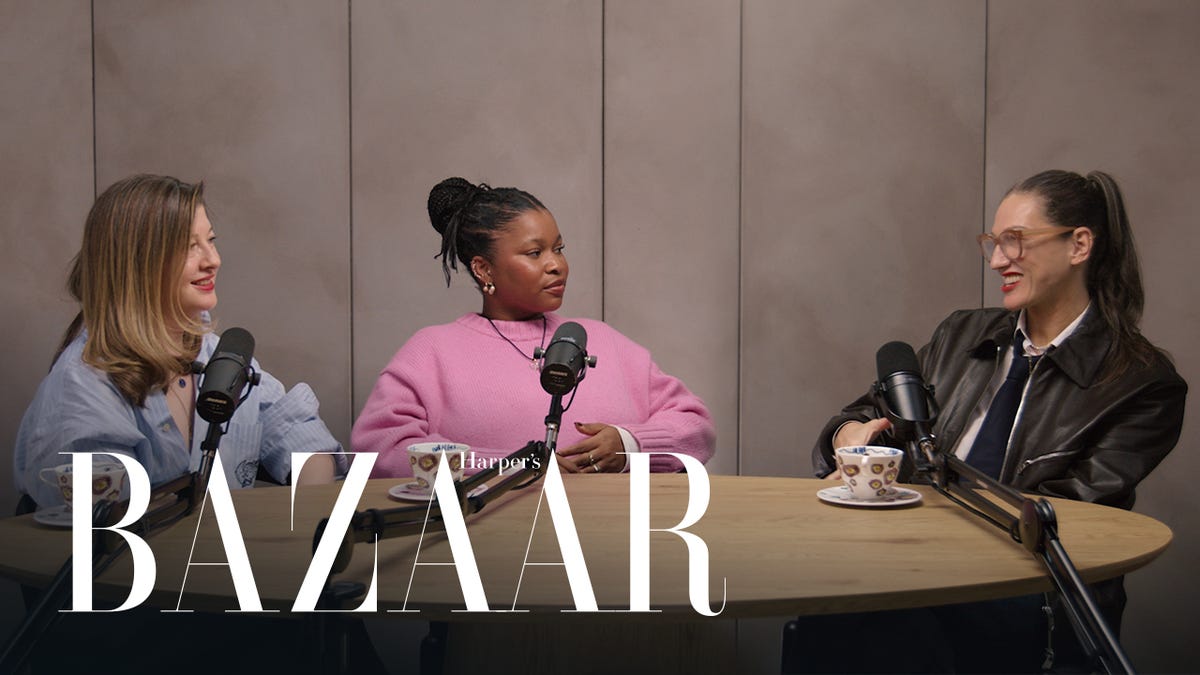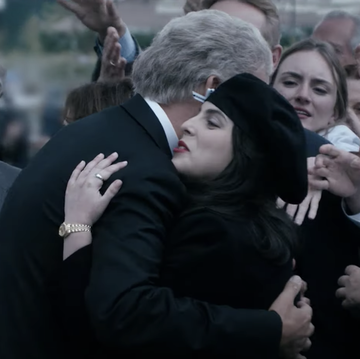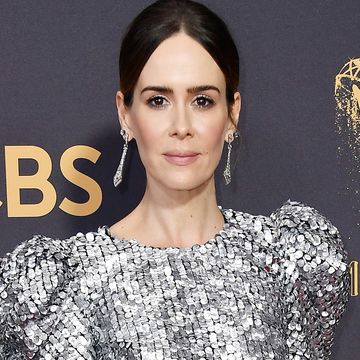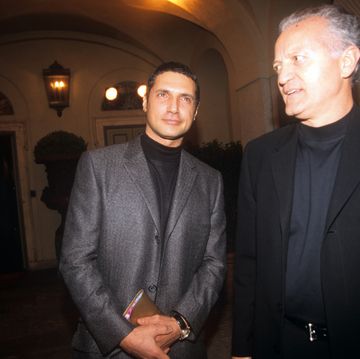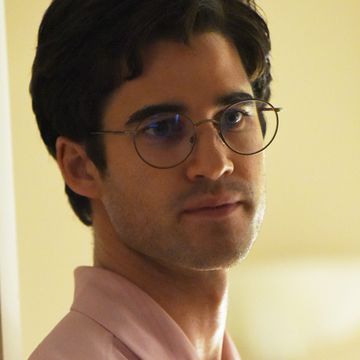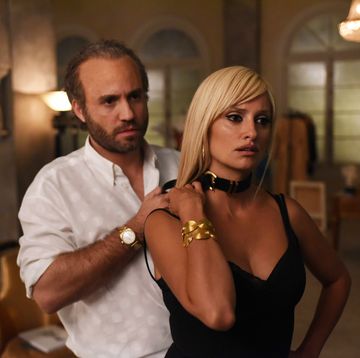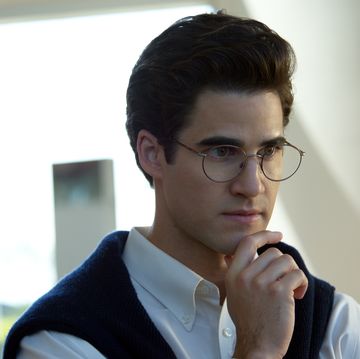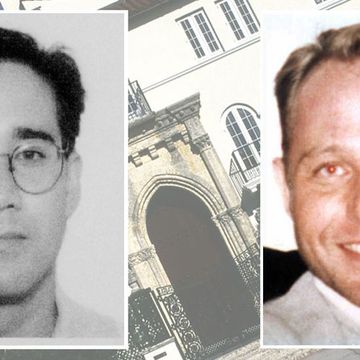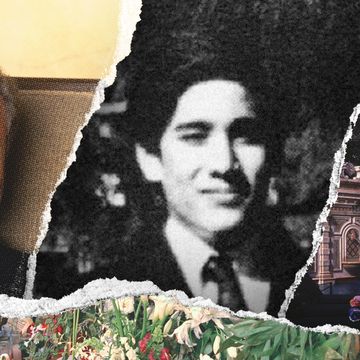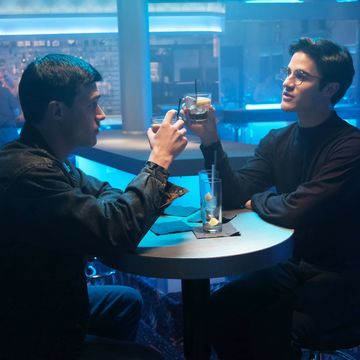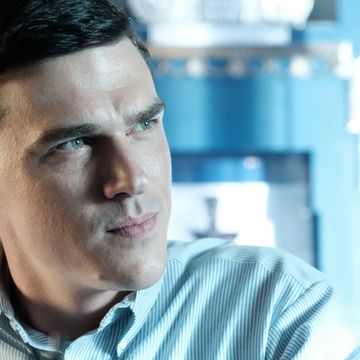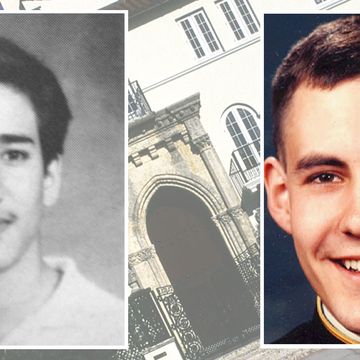Tonight's episode of The Assassination of Gianni Versace: American Crime Story centered on Andrew Cunanan's origin story. Spanning several years in Andrew's early life, from childhood through to his late teens, "Creator/Destroyer" explores his formative relationship with his doting-yet-abusive father, Modesto "Pete" Cunanan. The elder Cunanan is played by actor Jon Jon Briones, who, in the space of just one episode, turns in one of the series' most mesmerizing, frightening performances.
Modesto's obsession with building a successful life in America at all costs gave him the drive to land a job at Merrill Lynch against the odds, but—as the episode portrays—also drove him to commit massive financial fraud. When he's discovered, he flees the country, leaving his wife and children with nothing. But before all that, he dotes on Andrew to an alarming degree while ignoring his other children and openly abusing his wife, all of which fuels Andrew's sense of entitlement and his instability.
For this week's recap, Briones spoke to BAZAAR.com about Modesto's psychology, the lack of complex roles for Asian actors in Hollywood, and working with Darren Criss on that extraordinary final scene.
On his astonishment when he first encountered the role:
"To tell you the truth, when I first read the script, I immediately thought ‘is this really written for an Asian actor?’ There are, truthfully, not a lot of roles for Asian actors that are written with this much complexity, or that offer such a rich story. I had to calm myself down, because I was putting a lot of pressure on myself when I first read it. This is one of the biggest, meatiest roles I've ever read for an Asian actor, so I felt a real responsibility to do it justice.
"Before this, I was getting offered a tiny role for a terrorist, or drug dealer, or the guy behind the counter. There’s still a lot to be done, but I’m hoping that my performance might open up some minds a little bit in Hollywood, because there are a lot of amazing actors that could have done this role, but they just don’t get the opportunities."
On what he focused on to understand Modesto:
“What really stood out to me was that this guy is an immigrant who came from very small means and is essentially self-taught; he put himself through school and got into Merrill Lynch, back in the days when it was just Caucasian Ivy League graduates. He’s an amazing man, in many ways, but he’s also hugely flawed and delusional. His pursuit of the American Dream is so intense, and in the end his single-mindedness was his downfall."
On Modesto's deeply dysfunctional relationship with Andrew, and his abuse of his wife Mary Anne:
"I’m a father, and I can understand loving your child, but his love is like it’s on steroids. In a way, it's like he replaced his wife with Andrew. When the family moved into a bigger house, we see him bringing Andrew in, showing him the master bedroom, instead of bringing his wife in and introducing her to it, like 'This is our house.' It was all about Andrew. I think it came from pure love, but in a twisted, twisted way.
"Playing the abuse was hard. I understand it, and I know where it came from for the character—he just wanted success more than anything, and more than anyone. So when he doesn't get his way, or when it’s not how he envisioned it, the frustration is like a volcano erupting."
On Modesto and Andrew's climactic final confrontation, in a sweltering hut in the Philippines:
"I've always been a big fan of Darren's, but to act with him up close was amazing; he's such a giving actor. We rehearsed that scene a huge amount, we walked through it— myself, Darren, Matt and the first AD [assistant director]—and blocked it out ahead of time. He let us just move around the space, feel it out, and so it was like doing a play. When we actually came to film it, there was such a flow to our movements that the emotions would just explode from us. The lighting in that scene was so surreal, too; it reminded m a little bit of that "horror" scene in Apocalypse Now between Marlon Brando and Martin Sheen."
On Matt Bomer, who made his directorial debut with this episode:
"He is amazing. I can’t believe that this was his first directorial gig, considering his understanding of the material and his preparedness. I was grateful that he's also an actor, because he understood the insecurities of actors. This was the biggest on-screen role that I've ever done, so I felt a lot of pressure to deliver, and every time we would cut Matt would come out of the monitor village to give me encouragement. Also: he's so talented, he's so nice, and he looks like that?!"



